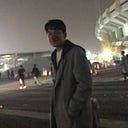What does Yoshida’s discussion of the way that the media’s reporting on the Nanjing Massacre downplayed its atrocities tell us about the role that non-state and non-military actors played in Japan’s total war?
Through not only the media, wherein Japan’s incursions into China were reframed as fights for justice, but also textbooks, where young Japanese people and children learned through a highly militaristic curriculum, Japan aimed to suppress any possibility of opposition to the war in China. Through the rather explicit words of Yoshida, we see the primary aim in stopping the spread of information through methods like paper bombs was to quell any possible dissent before it even happened.
I think that this plays an important role in understanding the imperial nature of Japan. It better enables us to engage in historical empathy, as it’s a lot more understandable as to why the imperialism took place. I think it’s an important distinction to make that just because a country is imperialist, it doesn’t mean that all of its citizens are — something we need to be incredibly careful with during decolonization.
What is a spy? Do you think it is possible to be considered a “spy” as a colonial subject?
A quick note on Dankichi before going into the question: I know it’s incredibly dated and these views were much more common back then, but still; what the heck, man?
In the context of Okinawa, a spy would be anyone who was either captured by the Americans or even possibly had any interactions with them — even women, children, and the elderly were considered potential threats. Of course, the actual definition of spy is one who conducts espionage for a foreign organization.
I do think it is definitely possible to be a spy as a colonial subject. The main difference would be that being a spy would be completely justified. I would without a doubt be looking to assist any foreign powers that promised liberation if I were under colonization. I think this is why we see the drastic measures taken by Japan, however — as the empire largely conducted its operations overseas in a non-amicable manner, there was plenty of opportunity for dissent. This meant that any form of potential rebellion or espionage had to be taken care of through violence, especially with the enemy at the door.
How does “Diary of a Housewife” complicate your understanding of the Japanese wartime experience? What does it reveal about the relationship between city and countryside?
I think it’s interesting to see this civilian perspective, wherein it’s bittersweet for her that it’s no longer going to be constant suffering as a result of wartime efforts, but also the fact that her country has surrendered. In addition, it reveals much about how the city folk were rather exploitative of the countryside, currying favor and faking praise in order to avoid being in one of the primary targets of US bombers.
It’s interesting to see how the civilians were definitely hit the hardest, and it broke the spirit of war in many.
